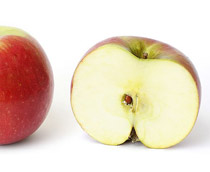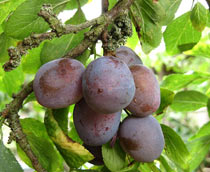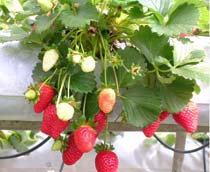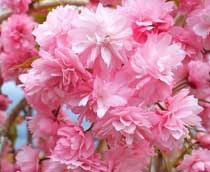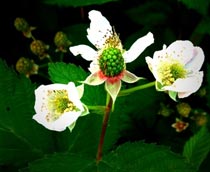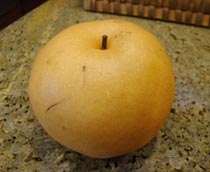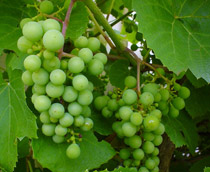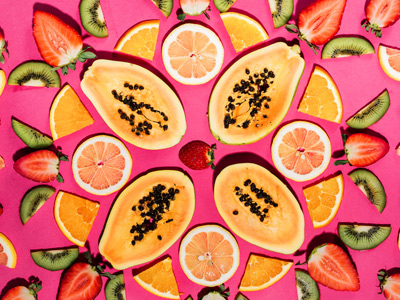
Fruit - Fruits 3
Our third quiz to test your knowledge of fruit growing in the UK. Although there are numerous fruits that CAN be grown in the UK it has to be said that some of them are very difficult for amateurs. We hope that our quizzes will give you some useful tips.
One further thought: fruit trees are likely to be a permanent fixture in your garden for many years and therefore it is well worth researching the varieties that are best suited to your conditions. A few hours spent reading now will ensure that you get the most from your hobby for years into the future.
- Choose your apple tree(s) carefully - they will be with you for many years.
- Choose varieties that you like the taste of - tastes vary enormously.
- Make sure that the variety is grafted onto a rootstock that is suitable for the position where it is to be planted.
- Some rootstocks make huge trees and others make tiny trees.
- Some varieties need another variety growing in close proximity in order to fruit well - referred to as a 'pollinator'.
- A good pollinator will bear excellent fruit in its own right.
- Most often used in jams and jellies.
- The Romans were keen on the fruit and, as well as eating them, they were used to create purple dyes.
- Small white blossom in the Spring leads to harvestable fruit in August and September.
- A full grown tree might bear 120lb of fruit.
- Melons were a great favourite of the Victorian aristocracy because they could afford to build heated greenhouses specially for them!
- New varieties of the sweeter types of melon are being bred especially for growing outside but it has to be said that they still do better in the south of the country.
- Strong winds damage the plants beyond recovery.
- Powdery mildew can also be a problem.
- Latin Genus: Fragaria.
- Commercially strawberries are often grown in troughs of nutrient solution positioned at a convenient height for picking.
- In the garden, strawberries can be grown in most soils (even heavy clay) provided they never stand in water.
- The first year crop is the best quality, the second year crop the best quantity and it's downhill after that.
- Slugs and blackbirds love strawberries as much as we do!
- Genus: Prunus avium.
- This stone fruit does very well in the south of the UK but it gets more temperamental the further north you go.
- One late spring frost can wipe out an entire crop.
- The trees like hot conditions but they don't like it dry.
- Irrigation before and during the fruiting period is very desirable.
- Watch the birds - this is probably their favourite fruit!
- The berries are often picked in the countryside from wild plants but if you like their taste it is more reliable and consistent to grow your own.
- Varieties have been produced that lack the vicious thorns of wild plants.
- On the other hand, if you want to create a hedge to keep out your neighbours' pets then choose a thorny variety!
- Very reliable in the garden whatever the weather.
- Latin Name: Pyrus pyrifolia.
- Sometimes called Apple pear.
- Erroneously thought to be a cross between an apple and a pear.
- Fruit has a very high water content and the fruits tend to disintegrate if baked or used in a pie.
- Produces a reliable, heavy crop in the UK.
- The flavour and texture are best when picked and eaten straight from the tree in mid to late September.
- Plants will survive winters of extreme cold but they very much dislike waterlogged soil.
- The plants fruit on growth that was produced the previous year.
- After fruiting remove all the growth that has had fruit on it this year.
- For midsummer cropping a good variety is Glen Ample and for autumn cropping probably the best variety is Autumn Bliss.
- Green grapes are never referred to as such - in garden parlance green grapes are called white grapes!
- Strong support is essential whether grown in a glasshouse or outside.
- A grape vine lives a long time and you only have a chance to prepare the soil for its root system once!
- Make a planting pit that is at least two feet square and fill it with good soil mixed with liberal quantities of well rotted manure and compost.
- Latin Name: Actinidia deliciosa.
- Sometimes known as Chinese gooseberry.
- The fruit originated in China and not in New Zealand as is widely supposed.
- The first record of kiwi fruits growing in New Zealand is in 1906.
- The plants are most contented in a greenhouse or sheltered, sunny spot and are capable of producing large quantities of fruit in the UK.
Ready for more?
not all...
quizzers. Try to win a coveted spot on our Hall of Fame Page.





